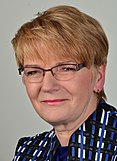European Parliament election, 2019 (Gibraltar)
|
|
|||||||||||||||||||||||||||||||||||||||||||||||||||||||||||||||||||||||||||
|
|||||||||||||||||||||||||||||||||||||||||||||||||||||||||||||||||||||||||||
|
|
|||||||||||||||||||||||||||||||||||||||||||||||||||||||||||||||||||||||||||
|
All seats to the European Parliament |
|||||||||||||||||||||||||||||||||||||||||||||||||||||||||||||||||||||||||||
|---|---|---|---|---|---|---|---|---|---|---|---|---|---|---|---|---|---|---|---|---|---|---|---|---|---|---|---|---|---|---|---|---|---|---|---|---|---|---|---|---|---|---|---|---|---|---|---|---|---|---|---|---|---|---|---|---|---|---|---|---|---|---|---|---|---|---|---|---|---|---|---|---|---|---|---|
|
|||||||||||||||||||||||||||||||||||||||||||||||||||||||||||||||||||||||||||
|
|||||||||||||||||||||||||||||||||||||||||||||||||||||||||||||||||||||||||||
The next Elections to the European Parliament are expected to be held in 23–26 May 2019. A total of 751 Members of the European Parliament (MEPs) currently represent some 500 million people from 28 member states. In February 2018, the European Parliament voted to decrease the number of MEPs from 751 to 705, after the United Kingdom withdraws from the European Union on the current schedule.
According to the European Council, the Council agreed at ambassador level on an agreement to improve the EU electoral law, while those old laws dated from the 1976 Electoral Act will be reformed. It is proposed that when the new laws are ready, the European Parliament will vote on them.
The stated purpose of the new laws is to improve citizens' participation in the EP elections, to raise understanding of their European character, and to prevent irregular voting while respecting the constitutional and electoral traditions of the member states.
The draft considers forbidding "double voting", voting in third countries and improving the visibility of European political parties.
To avoid double voting, contact authorities will be established to exchange data on non-national citizen voters. This process will have to start at least six weeks before the EP elections.
The Spitzenkandidat process, in which a leading candidate is identified for each party, was first used in 2014, and opposed by some in the Council. The exact future of the process is uncertain, but the Parliament has attempted to codify the process and the parties are almost certain to select the candidates again. On 23 January 2018, the Constitutional Affairs Committee adopted a text stating that the Spitzenkandidat process could not be overturned, and that Parliament "will be ready to reject any candidate in the investiture procedure of the commission president who was not appointed as a Spitzenkandidat in the run-up to the European elections".
In May 2018, a poll suggested that 49% of the people consider the Spitzenkandidat process will help them vote in the next European elections, while 70% also consider that this also requires a "real debate" on European issues.
The incumbent, Jean-Claude Juncker, has stated he will not seek a second term as President.
...
Wikipedia









